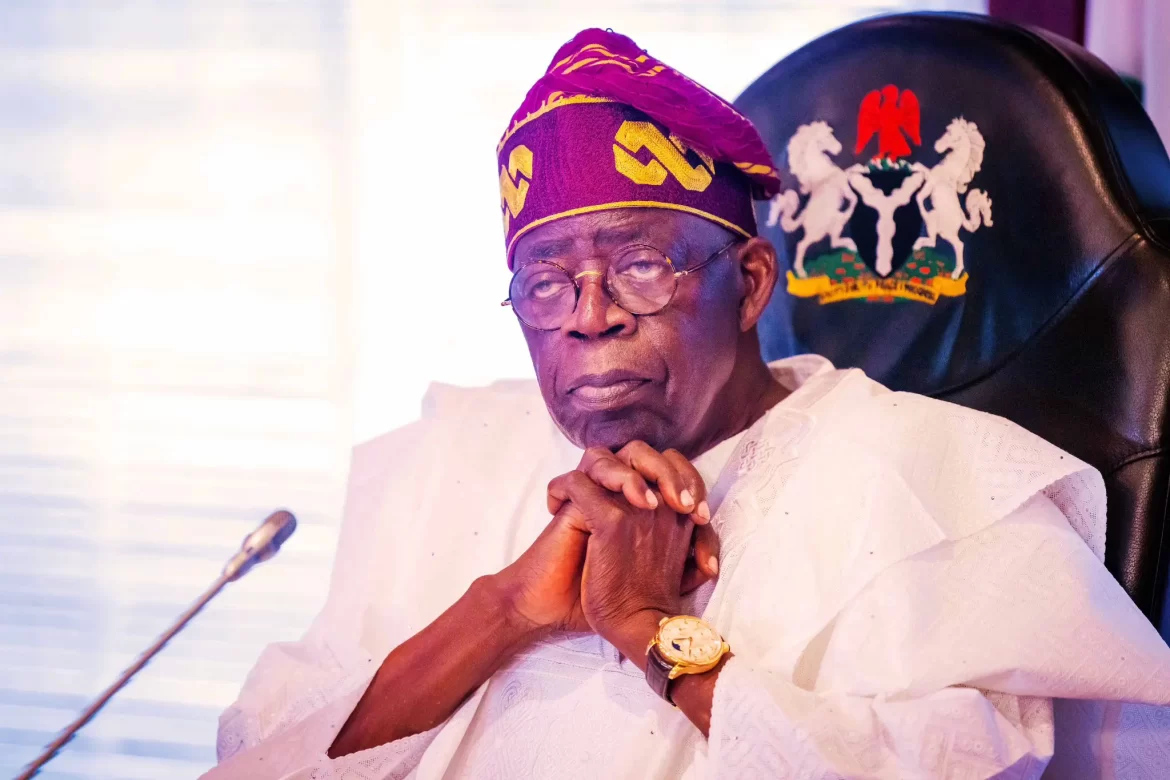996
By Daniel Adaji
Amidst growing economic hardship in Nigeria, President Bola Tinubu’s administration has spent N771,094,800 million on honorarium over a five-month period, according to data obtained from BudgIT’s accountability platform, GovSpend, on Sunday.
This is just as some Civil society organizations have condemned the spending, demanding accountability and questioning the rationale behind such expenditures at a time Nigerians are grappling with rising inflation, subsidy removal, and economic austerity measures.
Critics argue that these funds could have been better utilized to provide relief measures for struggling households or invested in essential services such as healthcare and education.
A breakdown of the expenses reveals that in February 2024, the sum of N200 million was spent under the “State House – Headquarters” budget for “presidential honorarium and transportation.”
The expenditure rose to N300 million in March, all allocated under “State House Operations – Vice President.” In July, a total of N171,094,800 was disbursed under “State House – Headquarters” and “State House Operations – President.”
Notably, these payments were made for honorariums for June 2024, with individual transactions ranging from N5.3 million to N49.7 million. On August 6, another N100 million was released for the presidential honorarium for July 2024 under “State House Operations – Vice President.”
The revelations have elicited sharp criticism from economic analysts and civil society leaders, who describe the spending as insensitive and wasteful.
Chancellor of the International Society for Social Justice and Human Rights, Jackson Omenazu, in a phone conversation with our correspondent on Sunday expressed his dismay at the scale of the expenditure, calling it a stark disconnect from the realities faced by ordinary Nigerians.
“This shows how disconnected the president is from the populace. Hunger is biting Nigerians so hard that food has become a luxury rather than a basic necessity of life,” Omenazu lamented.
“What manner of insensitivity is this? N771 million for honorarium in five months? God, where is the conscience of our political elites in this country? How come they’re not in tune with the economic realities on the ground?”
He further warned that such financial mismanagement could be a deliberate strategy to suppress citizens ahead of elections.
“I can see a systemic weaponization of poverty in order to weaken the masses and deny us a valid voice during the next elections. Hunger is one of the most dangerous weapons on earth. Deploying it against fellow citizens is a crime against humanity,” he asserted.
Omenazu also recalled President Tinubu’s past activism for democracy and expressed his disappointment.
“In my honest view, Mr. President was one of the fierce agitators for democracy in this country, hence my surprise at the turn of events and the devaluation of human dignity under his watch. Spending public funds recklessly in this manner when millions of Nigerians can’t afford one square meal a day is really disheartening and unacceptable.”
Similarly, Nigeria’s Country Director for Accountability Lab, Friday Odeh described the expenditure as part of a troubling pattern of financial mismanagement.
“This reflects a disturbing pattern of wasteful budgetary allocations that do little to address the pressing economic realities facing Nigerians. At a time when citizens are expressing their concerns about bad governance through the 30-day rant regarding inflation, unemployment, and declining purchasing power, the expenditure of N771 million on honorarium within just five months raises serious concerns about accountability and fiscal responsibility,” he said.
Odeh also criticized the role of the National Assembly in approving such expenditures.
“It is unacceptable that such provisions, which serve personal and political interests rather than national development, are routinely inserted into the budget and become law once signed.
“The National Assembly, meant to provide oversight and ensure responsible spending, has instead become complicit in this waste, approving these allocations without questioning their necessity or impact,” he said.
Highlighting alarming figures from the 2025 budget, Odeh noted that N2,118,521,128 was allocated for the State House, N800,756,962 under the Secretary to the Government of the Federation (SGF), and N633,989,338 under the Ministry of Defence.
Other allocations were spread across ministries, including the Ministry of Information and National Orientation, Ministry of Foreign Affairs, Office of the National Security Adviser, Head of Civil Service, Ministry of Police Affairs, and the National Institute for Security Studies.
“My worry is, who benefits from these funds? Who accounts for them? And how do they contribute to national development? These are questions that demand answers,” Odeh insisted.
He called for urgent reforms, stating, “This appalling budget precedent must be corrected from the root, ensuring proper budgetary planning, rigorous oversight, and independent auditing processes that prevent funds from being funneled into wasteful and unproductive expenditures. Nigerians must speak out against this illegality. Governance must prioritize the people, not allowances.”



